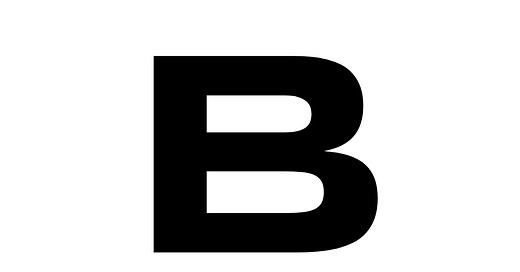Warning: The following article is for informational purposes only and should not be considered as investment advice. The author is not a registered financial advisor and does not provide investment recommendations. Any investment decisions you make should be based on your own research and analysis.
Additionally, please be aware that the author may have a financial interest in the securities discussed in this article. The author reserves the right to buy or sell any security mentioned in this article at any time, without prior notice. Therefore, the information presented in this article should not be considered as a solicitation to buy or sell any security. Please consult with a registered financial advisor before making any investment decisions.
Note: All currency is in Indonesian Rupiah
Overview
The ideal business is one that can not just sustain, but strengthen over time through any conditions or environment. Enter PT Multi Bintang Indonesia (Bintang), a near-centenarian beer company based out of Indonesia. A staple of Indonesian culture, Bintang is nearly 90% controlled by Heineken, a family-run global beer company, allowing it to take a long-term mindset that has led to a truly dominant market position. Because of the large devout Muslim population in Indonesia, the company largely relies on tourism to generate revenue, providing an opportunity to buy a unique, enduring asset at a discount to its normal earnings power.
Credit Where It’s Due
Very few ideas are truly original, and as a self-proclaimed Shameless Cloner (shoutout Mohnish Pabrai), I certainly have no qualms in admitting it. That said, I would have had no chance of finding Bintang if it were not for Michael Fritzell, author of Asian Century Stocks and Monday Morning Links. Michael does beyond excellent work on all things finance in Asia. Both of his newsletters are more than worth the subscription:
Monopoly-Like Beer Companies
Many people like to give shouts for “the best investor you’ve never heard of.” Today I will submit mine: Norbert Lou of Punch Card Capital. If you are not aware of Mr. Lou’s work I highly suggest reading up. While he is quite a private person, the limited trail of knowledge he has available is exceptional to say the least. So how does this tie into an Indonesian beer company? In 2005 Mr. Lou did a writeup on Quilmes, an Argentine beer company. In this writeup Lou highlights that most countries only have one to two beers that dominate on a national scale, making them extremely high quality businesses. This is vastly different from somewhere like the United States where the options are almost overwhelming. The problem? Like Quilmes, most of these companies have been snatched up by larger players, making these incredible assets no longer directly available in the public markets. Armed with this information, I searched the globe hoping to find one of these companies that had been overlooked. To my disappointment I could find none (other than Anadolu Efes in Turkey, which has its own issues, besides the company getting the significant majority of their business from Russia). I had given up on the search until Micahel tipped me off about Bintang, at which point alarm bells immediately started sounding off in my head. After doing some due diligence it quite quickly became clear that Bintang fit the bill of one of these high-quality, monopoly-like beer companies.
As an aside; If anyone is aware of any more of these businesses somewhere around the globe please reach out!
History
Bintang was founded in 1929 and began operations in 1931. By 1936 Heineken became the majority shareholder of the company, and has been ever since (barring a rather odd three year period from 2010-13). After being forced to shut down during World War II, Bintang restarted brewing in 1949, and in 1952 began producing the first Bintang branded beer. Now let's jump to 1981, the year the company went public. Of course, this is rather standard for a large company, but what is not standard is that in the forty-plus years since the IPO, the company has not issued a single share- something that is unfortunately unique in modern markets. Let's again take a jump, this time to 2015, in order to set the stage for the company today. In this year, Heineken decided it was time for a change after years of choppy performance. The company brought in new management and has been on a steady growth trajectory ever since. Of course, this was disrupted by the pandemic but today the company is chugging along back on this growth trajectory despite long Covid restrictions causing tourism to be at a fraction of the pre-pandemic level- more on this later.
Business
As we discussed, Bintang is a monopoly-like beer company. It sells various lines of beer under the Bintang brand, including non-alcoholic beer, as well as traditional Heineken, Strongbow Cider, and a few lines of local soft drinks. Though it changes in any given year, approximately 85-90% of sales come from their alcoholic products, with the rest, of course, being non-alcoholic beer and soft drinks. So I think it goes without saying that alcoholic beer sales are important to the results of the company. Given that all of their sales are in Indonesia this is actually an issue. Despite being (surprisingly to most) the fourth most populous country in the world, the Indonesian population is about 87% devout Muslim, meaning that they do not drink alcohol. Even for a country of 280M people, this does not leave a ton of potential customers after accounting for people below drinking age, or those that simply don’t drink by choice. This makes Bintang’s business largely dependent on travel, and in case anyone hadn’t heard there was a global pandemic- not exactly something that is good for travel. On top of this, Indonesia was particularly pragmatic in its approach to handling the virus, and kept most of its Covid-related restrictions in place until mid-2022. These restrictions greatly hurt tourism, with 2022 numbers being at less than a third of its 2018 peak of more than 18M people. As the country continues to open up and tourism returns, particularly in beautiful Bali, Bintang will be one of the primary beneficiaries, and with a nearly 90% return on invested capital most of the incremental cash falls straight to the bottom line.
Moat
Before getting into valuation, I think it is important to discuss what stops competitors from coming in and eating Bintang’s lunch:
Culturally Ingrained
The immense market position of Bintang has been intertwined throughout the writeup. Being a monopoly-like business, Bintang is the first, and maybe only, beer that many people in Indonesia will ever drink within the country’s borders. This took nearly a century to build and is unreplicable.
Distribution Network
While the country is on the continuous path towards industrialization, Indonesia still lacks the smooth transportation avenues available in most of the world’s more developed countries. Because of this, Bintang leverages its massive scale into a distribution advantage, making sure Bintang is sold and readily available everywhere it is legal to do so.
Regulation
A key, yet simple piece to the Bintang story. Any imported beer in Indonesia is slapped with a 150% tax. This makes the importing and sale of foreign beers non-competitive simply on price alone.
Valuation
As has been the case since the new management has taken over, and is in line with their guidance, Bintang should be able to grow its sales at about the rate of growth of Indonesia’s gross domestic product (GDP, a measure of a country’s economic output), which has been and is expected to be steady between 5 and 5.5%. On top of this, the business has extremely low capital requirements, allowing them to pay out 100% of earnings via dividends. This should generate a very comfortable 10-11% return per annum. While this is a nice return, it is certainly nothing to write home about. The real juice here comes from the return of tourism to historic norms of 16M+ people. In projecting this, I expect that tourism will recover in 2024. As stated by management, Bintang has the pricing power to grow at the rate of inflation. After taking into account inflation rates from starting points of both 2018 and 2019 (2019 was weaker towards the end of the year due to Covid), I expect that a full recovery of tourism should bring in somewhere between $1.89T and $2.09T in EBIT in 2024. Splitting the difference between the average and median EV/EBIT multiple of global beer companies of 19.6x and 17.4x respectively (Bintang currently trades at a slight discount to this but a return to growth should warrant a return to a normal multiple) you would end up with a market cap somewhere between $32.74T and $41.07T. Again taking the midpoint of the median and average of the potential outcomes, you would get a market cap of $36.73T. This represents 104.5% upside from today’s close of $17.96T- a nice boost before compounding at the previously discussed 10-11% per year.
Risks and Rebuttals
Though they are low probability, even a tremendously high quality business like Bintang does present some risks, given the nature of where it is located. These risks are as follows:
Slower travel recovery
Eventually tourism in Indonesia will more than likely recover. The question becomes when will it happen. While I think a year and a half after reopening seems more than reasonable, there is always the possibility this takes a little longer. For a long-term investor, this is a non-issue, but for those focused on internal rate of return (IRR), this is something that should be taken into account.
Beer ban
It is again pertinent to recall that Indonesia has a large devout Muslim population. While many of these people are fine simply not drinking alcohol themselves, there is a portion of the population that believes the nation should ban beer altogether. I don’t think I need to explain why this would be a negative revelation for a beer company.
Liquidity
This is not the first time liquidity has been a concern in one of these writeups, and it most certainly will not be the last. Here is my standard copy and paste; Size and liquidity are important to understand when analyzing or investing in the company, but there is no way around it, other than of course not buying.
Summary
Bintang presents an opportunity to buy what might be a one-of-one company, with a business of the highest quality that has endured for nearly 100 years. It also presents a unique opportunity to invest in the growth of a country that is expected to eventually grow its population to the size of the United States today- though of course much of Bintang’s growth will come from increased tourism to the beautiful beaches of Bali, which should see sustained growth as the nation continues to develop. In addition, you have management that truly takes a long-term strategic approach to growing the business, with no risk of dilution. Not a bad way to get some global diversification.





Thanks for your thoughts. I understand the quality margins, b/s, and returns this company generates. But why when it returns to pre covid levels of tourists, say in ‘24 and has eps of say 750, so trading 11.5x, should it trade for a much higher multiple than a growth rate likely to be not much higher than 11/12x?